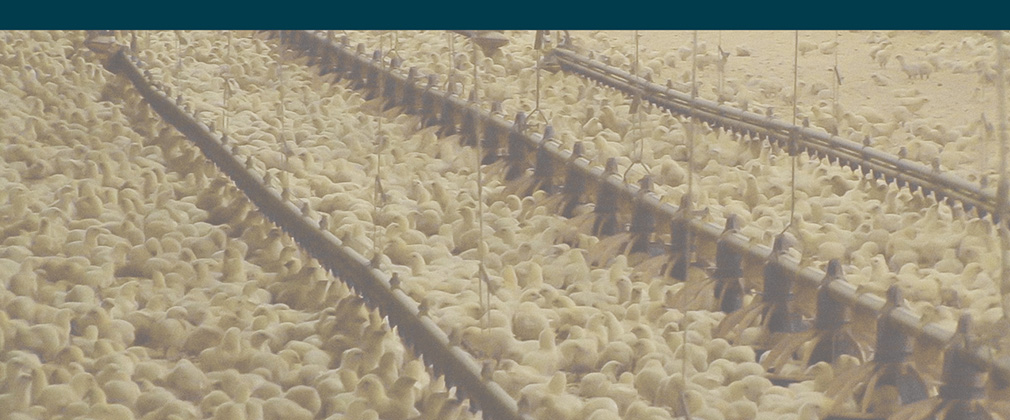Suite of CLF Policy Briefs Expand on 12 Action Steps Outlined in APHA Moratorium on New and Expanding CAFOs
Jun 25, 2020

The Johns Hopkins Center for a Livable Future (CLF) has published a suite of policy briefs to aid policymakers, advocates and non-profit organizations considering legislation on industrial animal agriculture, such as poultry, beef and pork production. The briefs complement a policy statement passed in November, 2019, by the nation’s leading public health organization, the American Public Health Association (APHA), calling for a moratorium by federal, state and local governments on new and expanding concentrated animal feeding operations (CAFOs), referred to by some as “factory farms,” that are the foundation of the current industrial animal agriculture model.
The briefs address each of the 12 actions steps outlined in November’s Precautionary Moratorium on New and Expanding Concentrated Animal Feeding Operations policy statement, which was developed by APHA members in collaboration with individual members from the Johns Hopkins Center for a Livable Future (CLF). The steps range from ending the routine use of medically important antibiotics in food animal production, to providing a mechanism that requires large-scale producers to report environmental emissions.
Each brief provides rationale and context for the 12 action steps; overviews of each action; and recommendations for policy changes. The briefs provide references regarding the urgency and necessity of the action.
From the November news release about the statement by APHA: “CAFOs confine large numbers of animals of the same species—such as beef and dairy cattle, swine, broilers (poultry raised for meat consumption) and laying hens—on a small area of land. The scale, density, and practices associated with these operations present a range of public health and ecological hazards, including large volumes of untreated animal waste, the release of environmental contaminants to air, water, and soil, and the generation and spread of antibiotic-resistant pathogens. A growing body of evidence shows how CAFOs are directly associated with occupational and community health risks, as well as the social and economic decline of rural communities.”
Those most profoundly affected by the harms associated with CAFOs are people living in rural communities, people with ancestral ties to land that has been unethically taken from them, and poor and minority groups who live near the CAFOs or work in them.
The intended use of the briefs is to aid in the development and adoption of evidence-based policy shifts that reduce the harms created by CAFOs and create a more level and inclusive playing field for all producers in the field of animal agriculture. People currently underrepresented in farming include young and/or beginning farmers, small-scale producers without access to capital, women, people of color and veterans among others.
“We hope these briefs will make it easier for policymakers, advocates and others to make necessary policy changes that address the inequities inherent in the current industrial model of food animal production,” said Sarah Goldman, Sr. Program Coordinator. “The Center stands ready to collaborate with any organization taking on the work of reducing the harmful social, economic, and environmental effects associated with CAFOs and building a food system that supports local communities and economies while safeguarding the public’s health and the health of our planet.”
The briefs can be accessed here. The November 2019 news release can be read here.